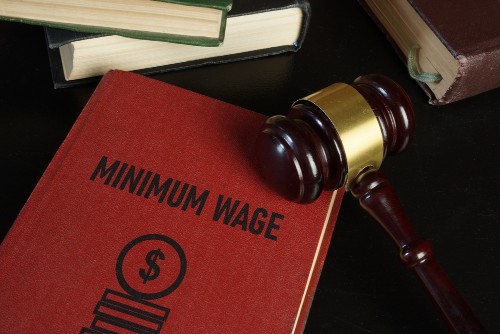CASTRIES, St. Lucia – The new minimum livable wage came into effect on Tuesday, with Prime Minister Phillip J Pierre urging members of the business community ”to give their best in the exercise of their work duties.
 “As a country, we need to improve our level of productivity if we are to remain competitive in the world. It is the sure and sustainable way of growing the St Lucian economy in the long run,” Pierre said in a nationwide radio and television broadcast.
“As a country, we need to improve our level of productivity if we are to remain competitive in the world. It is the sure and sustainable way of growing the St Lucian economy in the long run,” Pierre said in a nationwide radio and television broadcast.
He said productivity improvements are a positive-sum game with all stakeholders and the country benefitting.
“I, therefore, implore all workers together with their employers to do more to improve the level of productivity in their respective businesses,” he said, thanking the St. Lucia Chamber of Commerce and the St. Lucia Hotel and Tourism Association for having “no formal objection… with the final recommendations of the Commission”.
Pierre said that his administration had accepted the “minimum livable wage of EC$1,131 (One EC dollar=US$0.37 cent) per month or EC$6.52 per hour,” saying that the journey towards a fair days pay for a fair das work had started in 1930s.
He said that the Minimum and Equal Wages Commission was appointed in 2022 and that the last legislated Minimum Wage Order was in 1985.
He said the Commission’s work was guided by the adoption of methodologies recommended by the Organization for Economic Corporation and Development (OECD) and the International Labour Organization (ILO) and that in making its final recommendations to the government, many key factors were considered.
He said these included the general level of wages on the island, the cost of living, National Insurance Council contributions and benefits, the level of productivity as well as the impact on attracting foreign investment and the protection of workers.
He said that the acceptance by the major private sector organisations of the minimum livable wage “augurs well for the building of our nation, when employers are sufficiently socially conscious to stand in solidarity with workers at the lower income levels of the work force.
“I implore employers to strengthen this solidarity by resisting any efforts to reduce levels of staffing where adjustments are to be made to bring wages in line with the minimum livable wage.
“What may appear to be cost savings at the level of your individual businesses may turn out to be more costly at the national level, resulting in false savings,” Pierre warned.
“The October 1st implementation of the minimum livable wage is a clear commitment on the part of my government, to make the necessary interventions where market forces fail to address the minimum living standards of workers. The stability and strength of our nation is very dependent on the well-being of the vulnerable in our midst,” he added.


